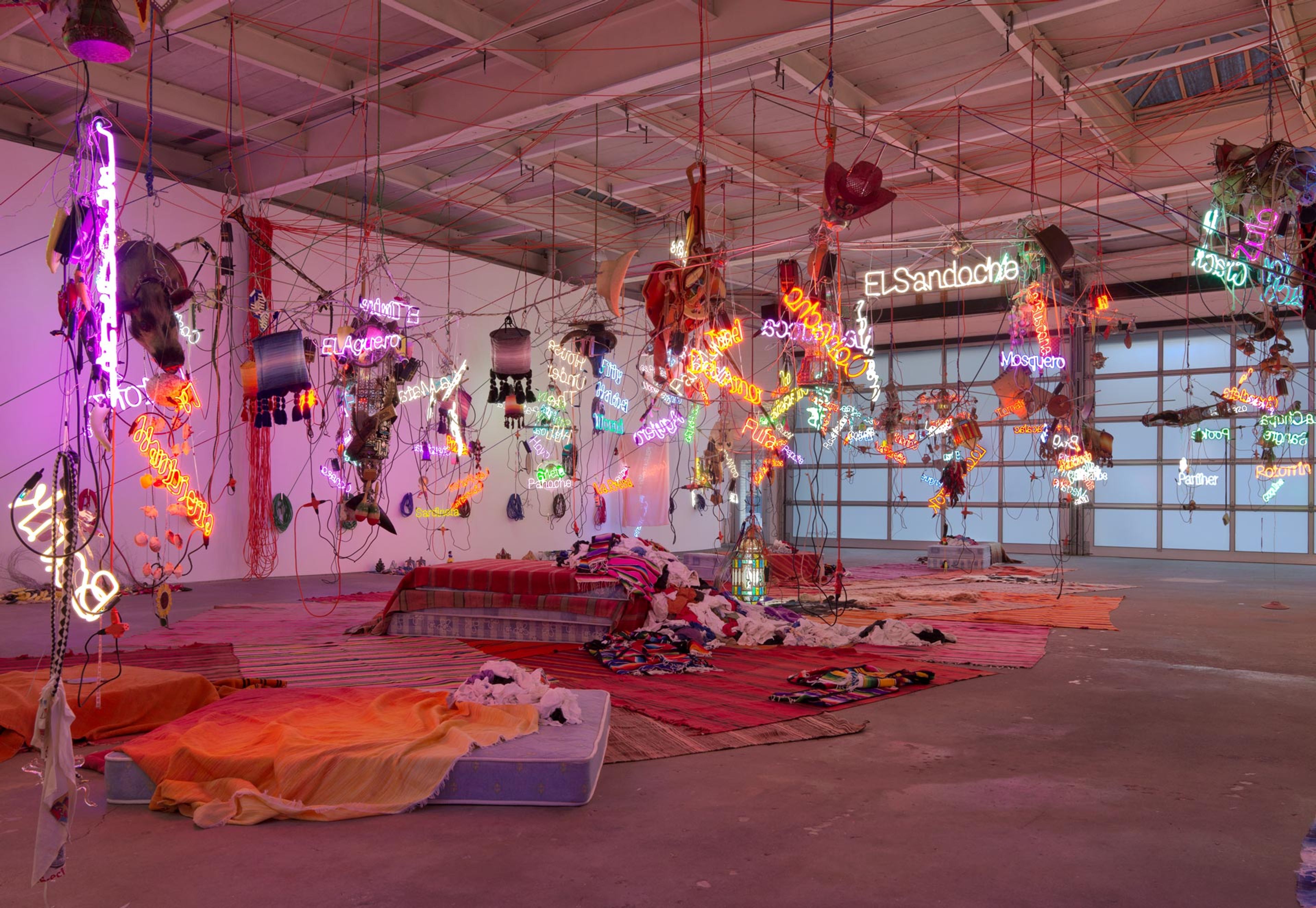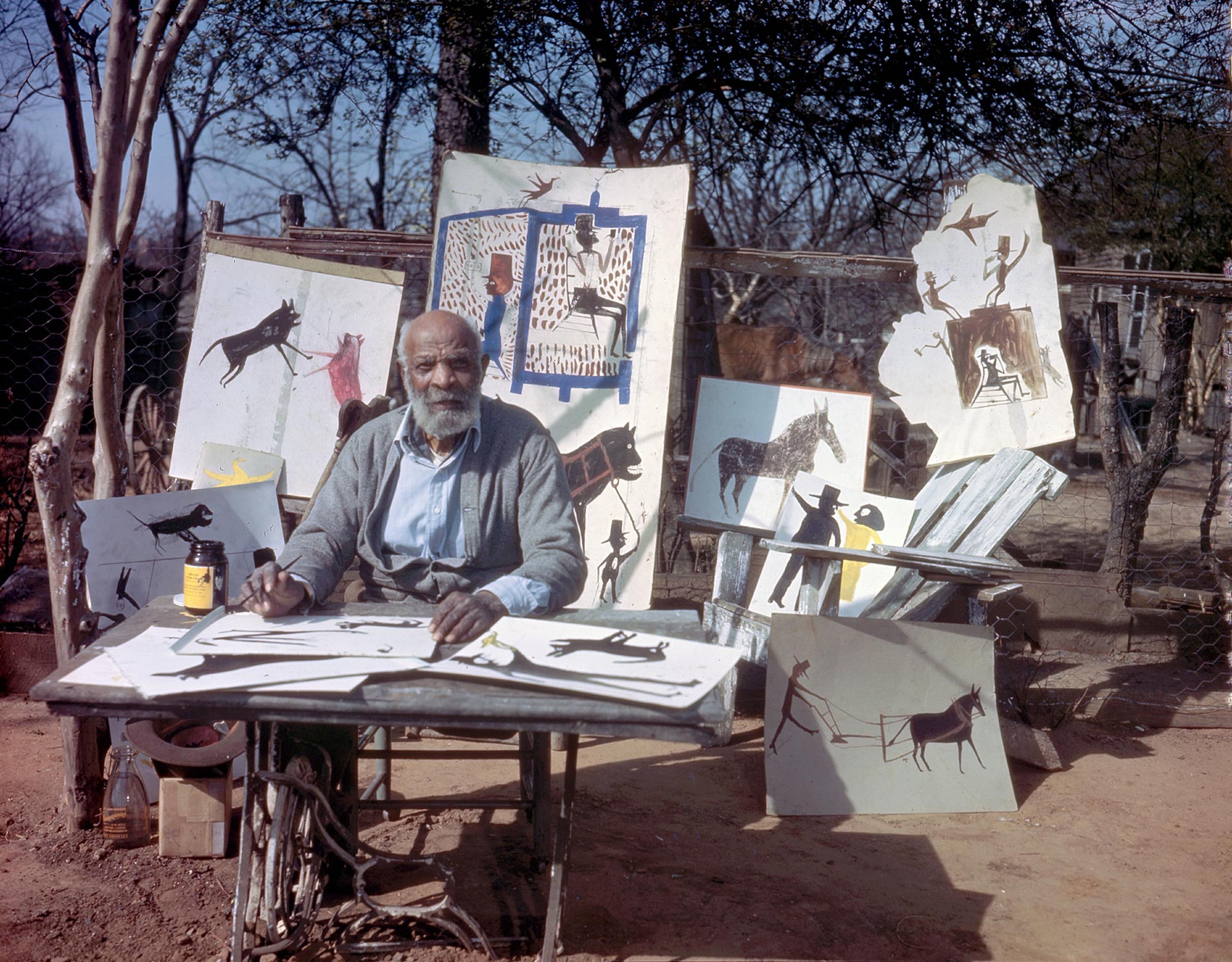October 22, 2019
The following excerpts are taken from an interview with Jason Rhoades conducted by journalist Javier Díaz-Guardiola, during a press conference at the opening of Tijuanatanjierchandelier at CAC Málaga, in 2006. Music by Shakira played in the background while the artist walked members of the press through the installation.
Jason Rhoades: Tijuanatanjierchandelier is on view at 519 West 19th Street, New York, through December 7, 2019.
You say that your work must not be understood as isolated pieces, but rather as the result of a process. What are we talking about exactly?
It is about life. I am interested in each and all of the connections that happen in life. I want to see everything as a continuum, but not like those artistic works that sometimes look like a salami that the artists are slicing up and taking to the market. l am fighting to make interconnections possible, and because things inspire me to create a work. My insecurity is probably part of the process. Maybe that’s why I do not want to forget things and I do not want things to forget about me. You might think that, as an artist, you are always present in your work, but we must fight to maintain the connection between the work, oneself, the first observer and the last. And the fact that the whole thing is part of a movement.
What does this accumulation of objects—whether they are found, built, bought or collected—actually represent?
Basically, this is my way of understanding culture and continuing it. lt all comes from my being a real workaholic and life giving me the opportunity to develop without problems. I also think that things have not gone bad for me at all and that I have been able to take advantage of the opportunities that were offered to me. I am a handyman, and think that I [could] survive a war or a crisis without difficulty. l don’t know how long that will last, because I am a person who likes to take a lot of risks. I do not like objects for objects’ sake. It always amazed me that a tourist would be able to get what he buys as a souvenir on a trip. That led me to reproduce his behavior in order to try and understand it. Behind the purchase of this or that object surely there always is a reason—lots of stories and lies—but the important thing is that this accumulated mess expresses a value we associate with culture and [that] it is necessary to defend a concept of culture that goes much further than soccer, Google, or french fries. I am not a person who likes art too much, but merely someone who is consumed by his work, by himself—a narcissist, no doubt about it—with a big superego.
In this installation there is a mixture of sex, fetishism, religion, and consumerism. What do all those concepts mean to you?
I am very fond of mysteries, and I try to unravel them, just like trying to grasp the big stories. They are, in turn, full of little stories and characters who star in them, and in the end they are all intertwined with each other. lt would be a very complex exercise for me to try to express anecdotes, because it also is more difficult to transfer those from one culture to another. It is the big stories we continue to write and rediscover and that we focus on, since those are the ones that help us communicate—that share a universal language. Perhaps I am focusing on my work in personal matters, but everything ends up being related to the big stories, and this is something that enables a culture’s strength, and allows it to have a dialogue with other cultures. China, for instance, fascinates me. It is the current challenge the US has to confront, and we must start to establish ways to come together and meet with that country as soon as possible.
You say they don’t take you seriously. However, in the presentation of this piece, you mentioned that the entire history of art can be condensed into one rap song. That is a very serious thought.
That thought is almost a life philosophy. I would love to be much more pop, and that pop would in turn be taken much more seriously. Maybe that is why I consider myself a mediator between Plato and Shakira—the Colombian singer—a kind of processor of popular culture. l don’t need to fear what is behind me, although I know it will end up devouring me. That is what happened to me in Tijuana, where I experienced violent situations that instilled fear in me. But I forced myself to undergo that fear
Your interest in Islam and the meeting of cultures led you to call this installation Tijuanatanjierchandelier?
There are a lot of things that put all those concepts together. Los Angeles, Tijuana, Tangier, and Málaga are border towns. The distance between Los Angeles and Tangier, and between Tijuana and Málaga, must be similar—there is an intellectual link—plus it was Spanish culture that gave rise to Tijuana and, up to a certain point, you could talk about the cultural impact of the US on Tangier.... Surely you can talk of cultural cross-fertilization between those four places, which to me is all the poetry I need to work with.
Image: Installation view, Jason Rhoades: Tijuanatanjierchandelier, David Zwirner, New York, 2019

